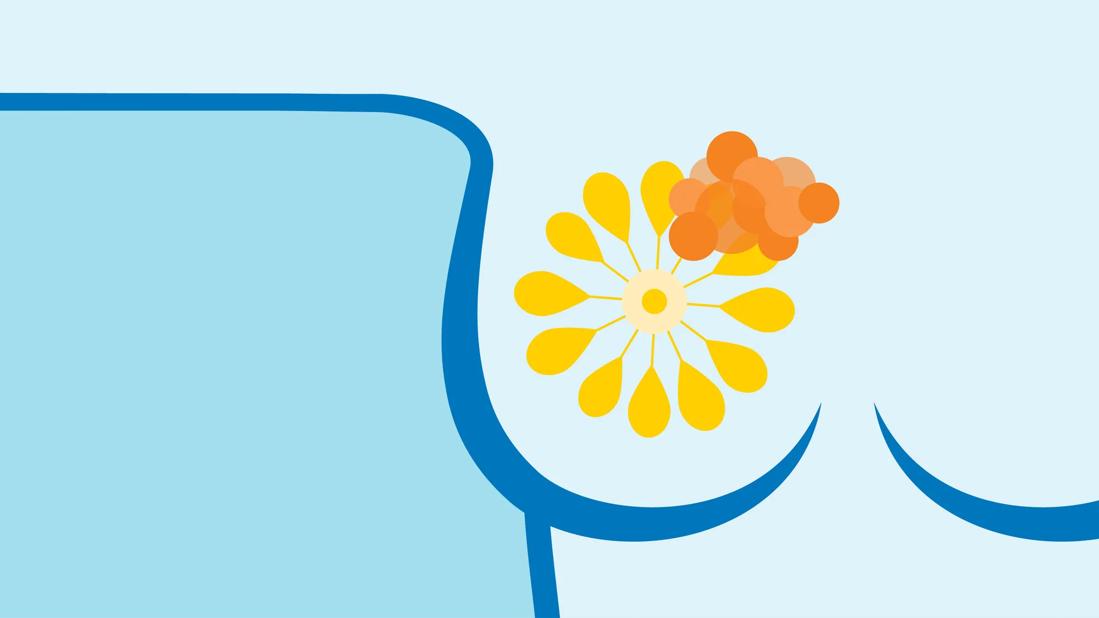Breast cancer’s growth rate depends on its type, stage, grade and more

If you or someone you love has been diagnosed with breast cancer, you probably have a lot of questions. Topping that list might be how fast breast cancer will grow and spread.
Advertisement
Cleveland Clinic is a non-profit academic medical center. Advertising on our site helps support our mission. We do not endorse non-Cleveland Clinic products or services. Policy
But the answer isn’t an easy one.
So, take a deep breath. And let’s look at what impacts breast cancer growth.
How quickly breast cancer spreads depends on things like the type of breast cancer you have, its stage, grade, whether it’s hereditary and more.
Studies have shown that some breast cancers double in size in weeks. Others take many years. And there’s no single factor that will predict how yours will behave.
“Breast cancers grow at different rates,” explains oncologist Erin Roesch, MD. “It’s difficult to give an overall estimate for how fast breast cancer will spread because every cancer diagnosis is different.”
Before you dive in, take a moment to remember that even cancers that are expected to be aggressive don’t always grow at the rates they’re expected to. And slow-moving cancers can pick up their pace. That’s why your provider looks at multiple factors to understand your cancer and create the best treatment plan.
Dr. Roesch shares what your care team will consider when evaluating your cancer.
Different types of breast cancer tend to behave differently. And the type of cancer you have is probably the most telling factor for how quickly breast cancer will grow.
Experts understand that some breast cancers tend to be more aggressive and fast-moving, while others typically move more slowly.
Advertisement
Breast cancer is typically given a stage from 0 (zero) to IV (four). Your breast cancer team will also consider the stage of your cancer as a sign of how aggressive it’s likely to be.
“The higher the stage of breast cancer you have, the greater the risk it will grow,” Dr. Roesch reports. “Cancer that has already spread to other parts of your body is more likely to continue to spread.”
Cancer caught at stage 0 has the lowest chance of spreading if properly managed. Stage IV has already spread and is harder to contain.
After having a biopsy, a specialist will look at your cancer cells under a microscope to better understand how different they look compared to healthy cells.
Based on that, they’ll grade your cancer on a scale of one to three.
Grade one cancer cells look more similar to normal cells, while grade three cells look significantly different. Grade two is in between.
Higher-grade tumors are often more aggressive and more likely to spread.
Your age itself doesn’t necessarily dictate how breast cancer is likely to spread. But it can be a window into how aggressive it’s likely to be.
“It’s not a hard-and-fast rule, but research suggests that when breast cancer affects people in their 40s and younger, it tends to be more aggressive and has the potential to spread quickly,” Dr. Roesch shares.
People in their 50s and older are more likely to develop slower-growing breast cancers.
If certain kinds of breast cancer run in your biological family, you could also be at a higher risk for breast cancer that can grow quickly.
Gene mutations associated with breast cancer (like BRCA and PTEN) can put you at a higher risk of developing faster-spreading breast cancer.
“The breast cancers that run in families tend to be more aggressive forms,” Dr. Roesch acknowledges. “And people with these genetic mutations tend to develop breast cancer at a younger age.”
Advertisement
There are steps you can take that may help slow or stop the spread of breast cancer. At the top of the list is keeping up with your treatment plan and making lifestyle changes that can help keep your mind and body healthy and strong.
“You can’t always prevent breast cancer or slow its spread,” Dr. Roesch notes. “But sometimes you can.”
Here’s what you can do:
Still, sometimes cancer has its own plan. Even if you do everything in your power to slow it down, cancer doesn’t always listen. And other factors, like your age and genetics, are out of your hands. So, give yourself some grace and know that you’re doing your best.
You don’t have to face breast cancer alone. Talk with your team about your specific risks and the steps you can take to stay as healthy and strong as possible.
Advertisement
Learn more about our editorial process.
Advertisement

Research consistently shows that soy-based foods do not increase your risk of breast cancer

Breast cancer typically spreads to your lymph nodes first, and can travel to your lungs, bones and more

Many breast cancer survivors have babies — talk to your provider before treatment to understand all of your options

A second opinion can confirm your diagnosis and treatment plan and help you feel more confident about what’s next

HER2-low is less aggressive than HER2-positive and HER2-negative, but the new designation allows for targeted therapies that may be helpful

Taking care of yourself extends beyond symptom management and includes things like passion projects and meaningful moments

Support groups, financial assistance and survivorship programs are all readily available

It depends on factors like the stage of the cancer, your age and other risks

Wearing a scarf, adjusting your outdoor activities and following your asthma treatment plan can help limit breathing problems

Your diet in the weeks, days and hours ahead of your race can power you to the finish line

When someone guilt trips you, they’re using emotionally manipulative behavior to try to get you to act a certain way